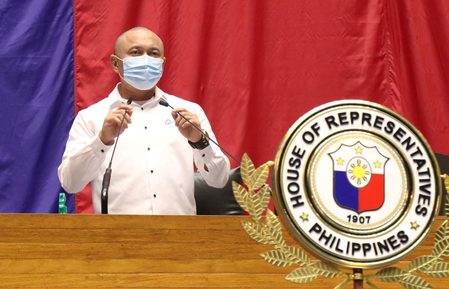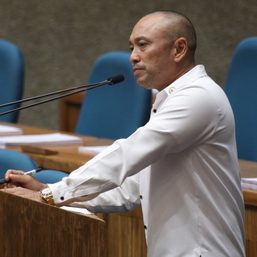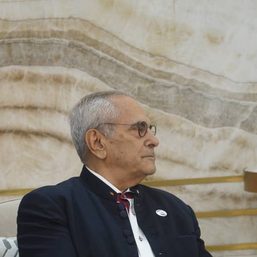SUMMARY
This is AI generated summarization, which may have errors. For context, always refer to the full article.

MANILA, Philippines – The fugitive former lawmaker Arnolfo “Arnie” Teves Jr is not free, contrary to an earlier claim by his lawyer Ferdinand Topacio, and has in fact been immediately rearrested by the Timor-Leste police as Philippines continues to work on extradition, the Department of Justice (DOJ) said Monday night, June 10.
Topacio claimed earlier on Monday that Teves was released from detention because “our government screwed up,” alleging that the Philippines filed its extradition request out of time.
What happened, according to DOJ spokesperson Mico Clavano, was a procedural release after which Teves was immediately taken into custody by the local police “to continue to stand trial for his anticipated extradition.”
“The statements of Attorney Topacio are misleading, highly irresponsible and an insult to both countries,” said Clavano Monday night.
Clavano could not immediately provide details on the procedure that released Teves, and added they were waiting for Timor-Leste to give a full briefing.
Teves is evading Philippine court warrants for the murder of former Negros Oriental governor Roel Degamo. He was arrested in Dili, Timor-Leste in March this year based on a red alert notice by the International Criminal Police Organization (Interpol).
The Philippines and Timor-Leste have no extradition treaty, making the latter the logical choice for a fugitive. An Interpol red notice alert is also not an international arrest warrant, but member countries such as Philippines and Timor-Leste are obliged to cooperate.
Cooperation in Teves’ case is tantamount to the former lawmaker being put on preventive detention as the Philippines figures out how to get him back.
Clavano said the country’s main route is still extradition using the framework of the United Nations Convention on Transnational Organized Crime (UNTOC), which both countries are signatories to.
“The Department is confident that the extradition proceedings will be successful. In addition, the former congressman may also still be deported depending on the direction taken by the Timor-Leste government in coordination with the Philippines,” said Clavano.
Teves has no valid passport, which is why deportation is on the table.
“His release and subsequent rearrest should not be taken as hindrance to the process but simply a part of it,” said Clavano.
According to Topacio, the hearings pertaining to the extradition request will start Tuesday, June 11, “and he will be present therein, together with witnesses in his favor, including former Human Rights Commissioner Wilhelm Soriano, who will be presented as an expert in human rights,” the lawyer said.
– Rappler.com
Add a comment
How does this make you feel?










There are no comments yet. Add your comment to start the conversation.